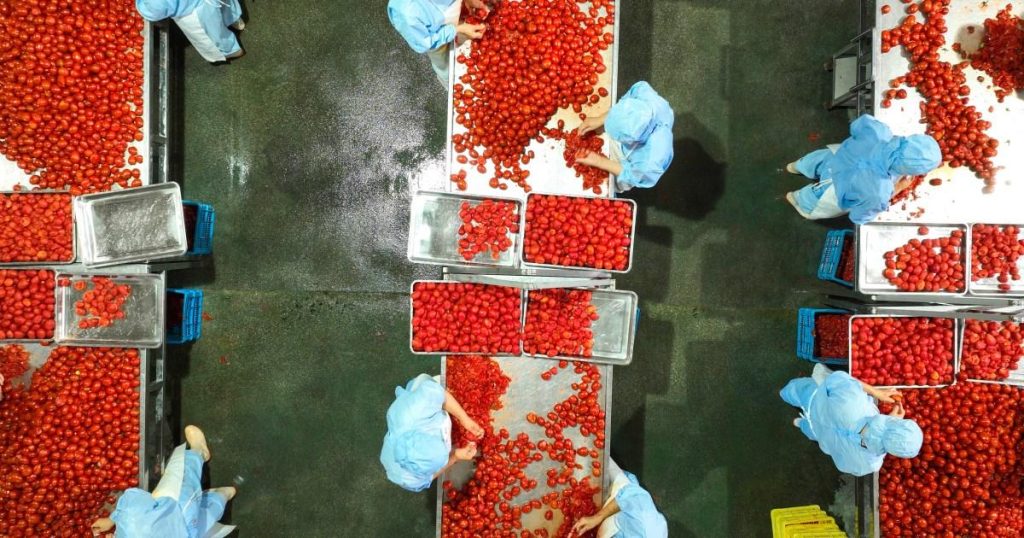A recent investigation by the BBC has uncovered that products labeled as containing ‘Italian’ tomatoes may actually contain tomatoes grown in China using forced labor. China is the largest global producer of tomatoes, with the majority of Chinese tomatoes coming from the Xinjiang region, where reports of forced labor by Uyghur and other Muslim minorities have emerged. Despite these allegations, China denies any wrongdoings and claims that workers’ rights are protected by law.
The investigation found that 17 tomato products, including purée, sold in UK and German supermarkets were likely to contain Chinese tomatoes. Six of these products were sold in major UK supermarkets such as Asda, Tesco, Morrisons, and Waitrose. However, all four supermarkets dispute the testing results and have conducted internal investigations which found no evidence of Chinese tomatoes in their products. Some supermarkets have suspended supply or ran their own tests to confirm the origin of the tomatoes.
Seventeen tomato purées were tested, most of which claimed to contain Italian tomatoes. Origin verification firm Source Certain found that 17 products actually contained Chinese tomatoes, with 10 of them being made by Antonio Petti, a group of tomato processing firms in Italy. Petti purchased 36 million kg of tomato paste from Chinese companies between 2020 and 2023. An undercover reporter posing as a businessman confirmed that Petti uses Chinese tomatoes in their products. Pictures of tomato barrels taken at the factory further confirmed this.
The BBC spoke to 14 individuals who claimed to have experienced or witnessed forced labor in Xinjiang’s tomato fields over the past 16 years. These individuals reported being subject to high daily quotas of up to 650kg of tomatoes and faced physical abuse if they failed to meet them. This mirrors evidence found in a 2022 UN report on torture and forced labor in Xinjiang detention centers. Most Xinjiang tomatoes are transported through Kazakhstan, Azerbaijan, and Georgia before being shipped to Italy for processing.
The allegations of forced labor in the tomato supply chain have sparked concerns among consumers and authorities. UK supermarkets have stated that they take these allegations seriously and are conducting their own investigations to ensure that their supply chains are free from forced labor. The UK Department for Business and Trade reiterated that companies in the UK should not have forced labor in their supply chains and are working internationally to enhance global labor standards. The issue highlights the need for transparency and ethical sourcing in supply chains to prevent the exploitation of workers.


